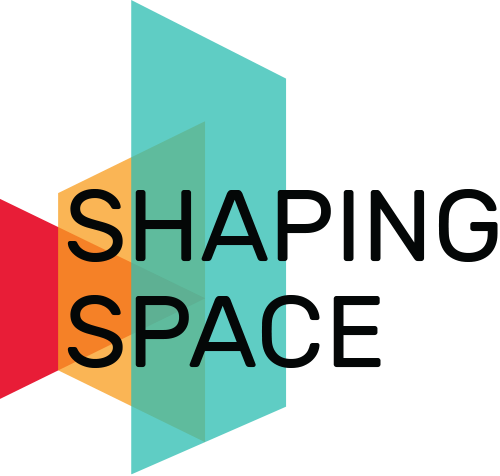


The research consortium of SHAPING SPACE will utilize a common physical infrastructure for our experimental work, theoretical discourses and teaching activities. This infrastructure will similarly be used for the communication (through exhibitions, performances, workshops and installations) of our research results to a larger non-academic audience. The environment is based on the existing infrastructure of the shared Campus Charlottenburg of TU Berlin and UdK Berlin.
Important facilities for the project include the Berlin Open Lab (BOL) as the central experimental space, the Lighting Technology laboratory (LED Lab), the Berlin Mobile Brain/Body Imaging (BeMoBI) Lab, the Interdisciplinary Centre for Modeling and Simulation (IMoS) providing cutting-edge technologies for digital fabrication, the designtransfer facility for dialog, talks, workshops, and symposia, the Hybrid Pavilion as experimental exhibition space for public outreach, and the Hybrid Lab as the planning headquarters of the project.
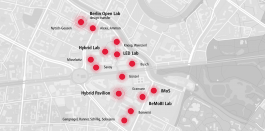
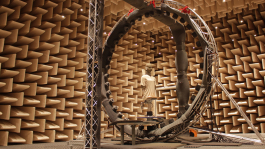
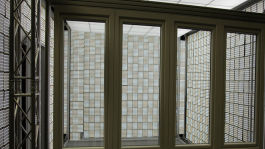
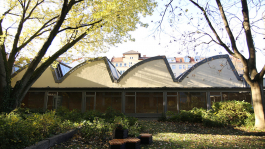
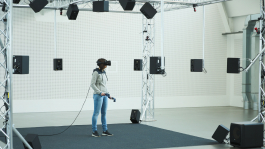
The anechoic chamber at TU Berlin is a full-space room with a cutoff frequency of 125Hz. This means that almost all the sound reflections are absorbed above this frequency. The laboratory with a ground area of nearly 50 square meters (8x6 meter) and a ceiling height of 2.3 meter is properly equipped to allow for numerous acoustic experiments.
For experiments investigating various aspects of perception of indoor lighting, a 1:1 mock-up room has been constructed. The translucent textile walls of the mock-up room are backlit over the entire surface with 1,470 cool white and warm white LED tiles. By mixing and varying the dim levels of these LED tiles, different distributions of brightness and light colors can be set in the room.
The Berlin Open Lab consists of a laboratory for digital prototyping and fabrication (DPF-Lab) and a laboratory for multi-modal, mixed reality design (MMD-Lab). The MMD-Lab is envisaged not only as a hub for software and hardware development for multi-modal modeling and display, but also as a mixed-reality environment in which artists and designers will creatively interact within the research consortium as well as with our numerous external cooperation partners.
Developing the VR Space
Prof. Dr. Sabine Ammon (Speaker)
Knowledge Dynamics and Sustainability in the Technological Sciences
TU Berlin
Marchstraße 23 10587 Berlin
Phone: +49 (0)30 314-73363
E-Mail: ammon@tu-berlin.de
Prof. Dr.-Ing. Christoph Gengnagel (Speaker)
Structural Design and Engineering
UdK Berlin
Hardenbergstr. 33 10623 Berlin
Phone: +49 (0)30 3185-2991
E-Mail: gengnagel@udk-berlin.de
Prof. Dr. Stefan Weinzierl (Speaker)
Audio Communication Group
TU Berlin
Einsteinufer 17 10587 Berlin
Phone: +49 (0)30 314-25359
E-Mail: stefan.weinzierl@tu-berlin.de

